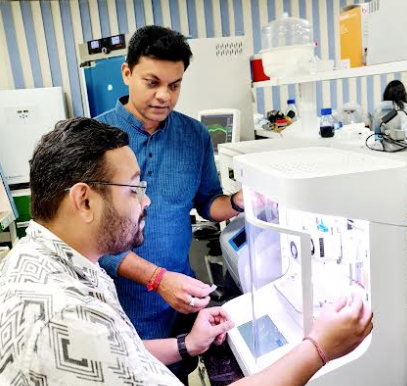IIT-G builds tailored solutions based on regenerative therapies for knee meniscus tears
March 28, 2024 | Thursday | News
Leveraging 3D bioprinting to develop personalised solutions for patients in need
Researchers from the Indian Institute of Technology Guwahati (IIT-G) in collaboration with the University of Animal and Fishery Sciences, Kolkata have formulated three ingenious treatment solutions for a certain type of knee injury that has historically proven difficult to treat.
By developing these key regenerative therapies, the researchers have provided possible alternative solutions to manage the problem of a knee meniscus tear, an injury to tissue in one’s knee joints.
The team from IIT-G has created three hydrogel formulations that are blends of silk fibroin and other polymers, which they envision can be used by doctors in clinics, to treat the meniscus injury. These components, especially silk, are well known for their strength, bioactivity and flexibility. They are also cost-effective compared to other materials such as commercially available polyurethane and collagen meniscus implants.
Out of the three, one is an injectable hydrogel, which can be injected in a minimally invasive manner directly into the meniscus site to expedite the healing of smaller injuries. When it comes to treating larger full thickness complex meniscus tissue injuries, the researchers have additionally created two 3D bio-printable inks that can be 3D printed into implants.
In the two bioink formulations, one carries commercially available growth factor loaded microspheres while the second bioink carries patient derived factors which are released in a sustained manner aiding faster meniscus healing. Both formulations can be 3D printed into a partial or full sized meniscus and used for healing large portions of the meniscus.










